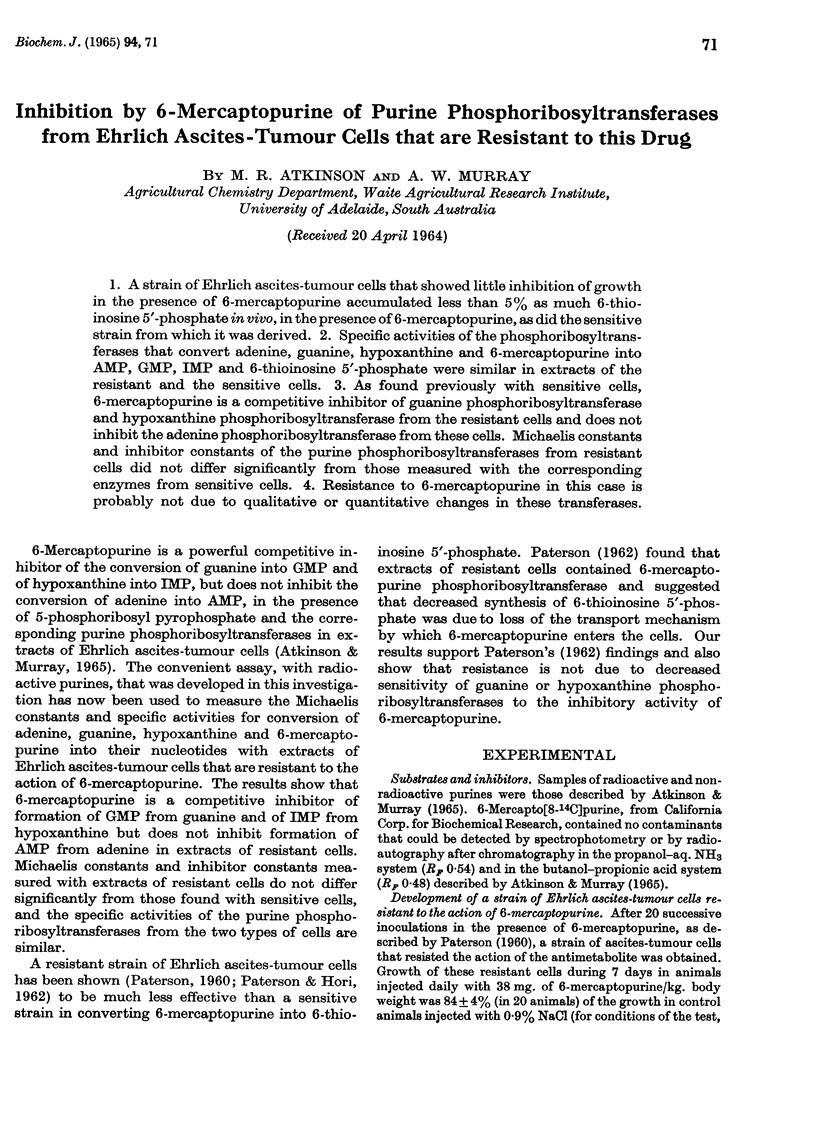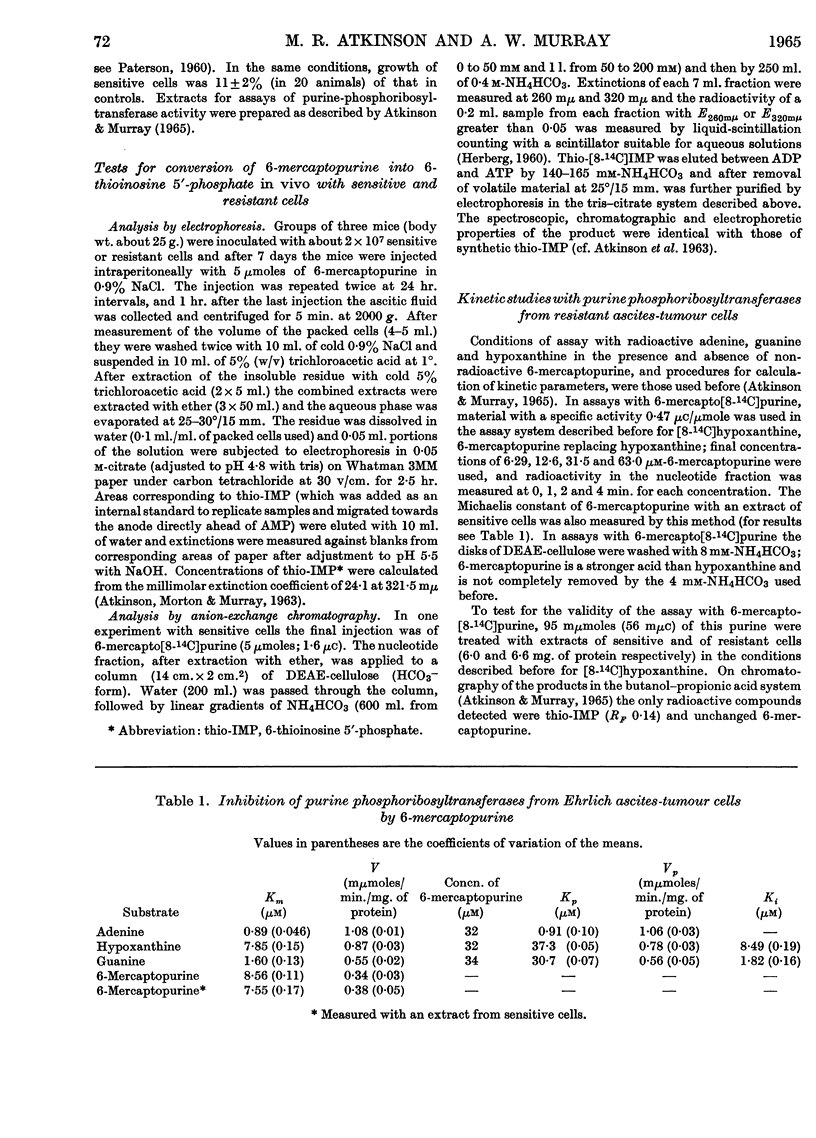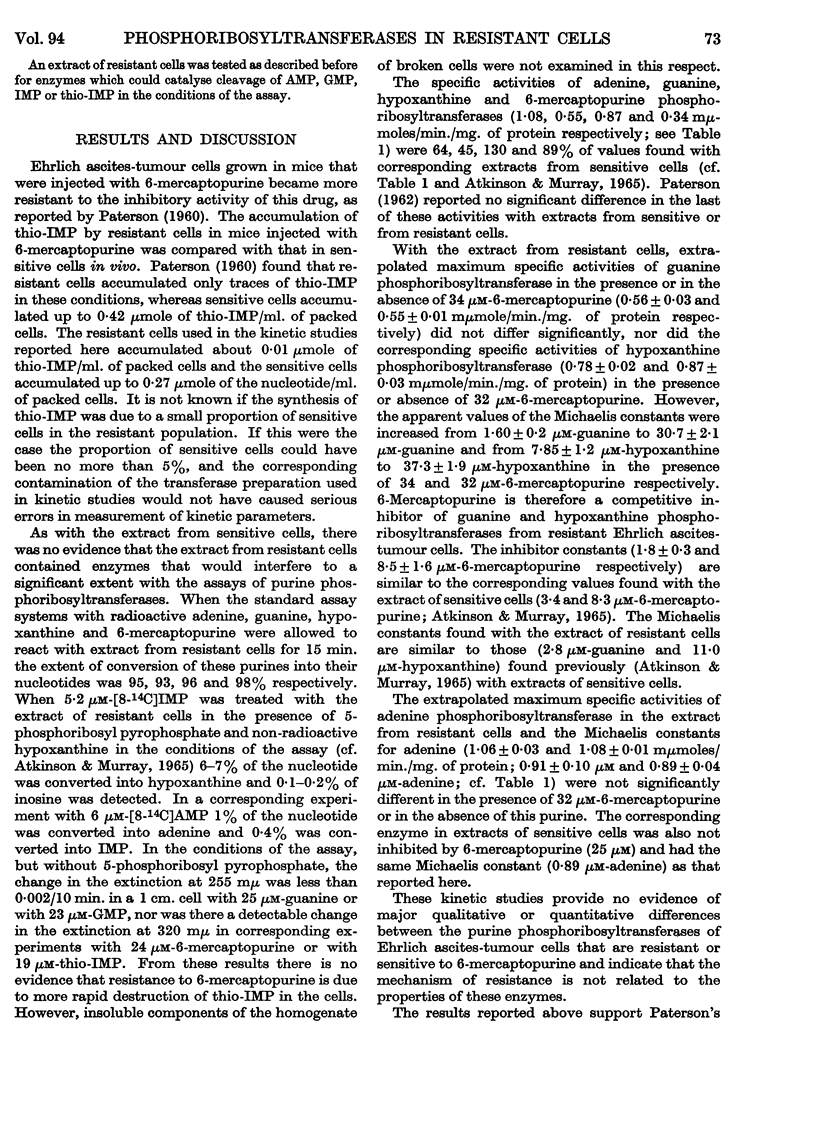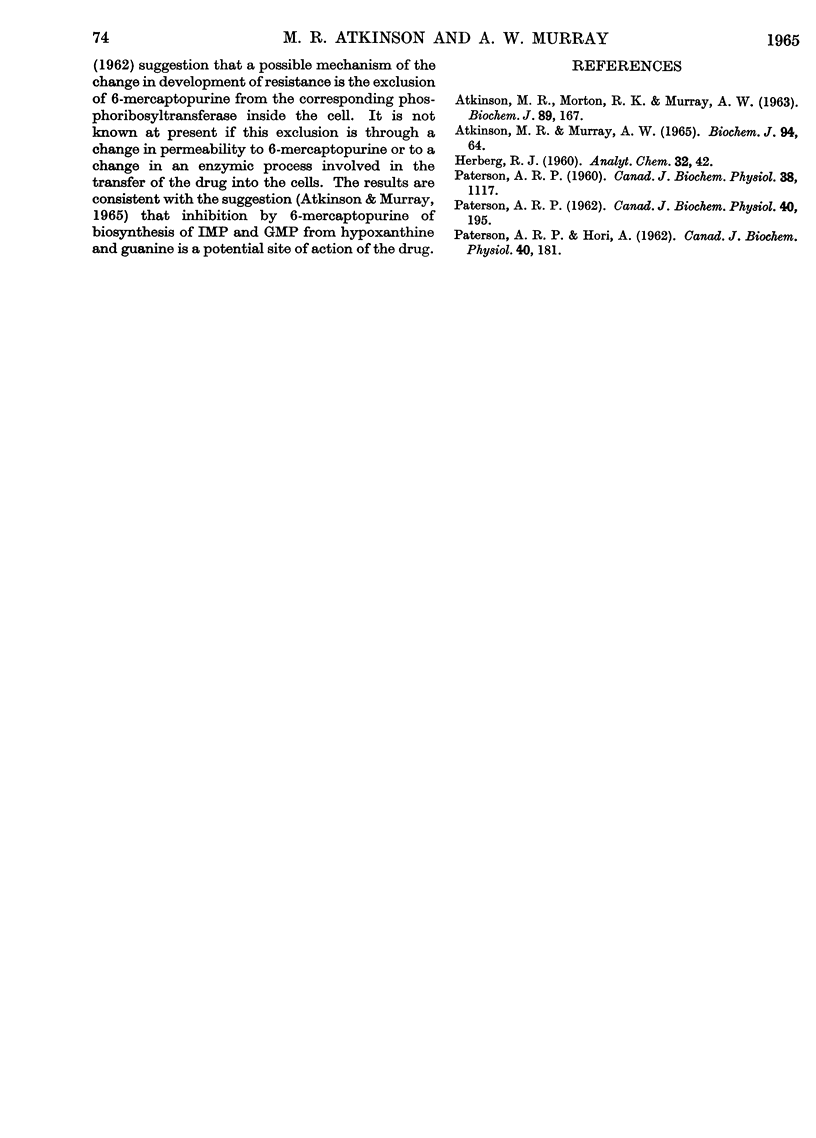Abstract
1. A strain of Ehrlich ascites-tumour cells that showed little inhibition of growth in the presence of 6-mercaptopurine accumulated less than 5% as much 6-thioinosine 5′-phosphate in vivo, in the presence of 6-mercaptopurine, as did the sensitive strain from which it was derived. 2. Specific activities of the phosphoribosyltransferases that convert adenine, guanine, hypoxanthine and 6-mercaptopurine into AMP, GMP, IMP and 6-thioinosine 5′-phosphate were similar in extracts of the resistant and the sensitive cells. 3. As found previously with sensitive cells, 6-mercaptopurine is a competitive inhibitor of guanine phosphoribosyltransferase and hypoxanthine phosphoribosyltransferase from the resistant cells and does not inhibit the adenine phosphoribosyltransferase from these cells. Michaelis constants and inhibitor constants of the purine phosphoribosyltransferases from resistant cells did not differ significantly from those measured with the corresponding enzymes from sensitive cells. 4. Resistance to 6-mercaptopurine in this case is probably not due to qualitative or quantitative changes in these transferases.
Full text
PDF



Selected References
These references are in PubMed. This may not be the complete list of references from this article.
- ATKINSON M. R., MORTON R. K., MURRAY A. W. INHIBITION OF INOSINE 5'-PHOSPHATE DEHYDROGENASE FROM EHRLICH ASCITES-TUMOUR CELLS BY 6-THIONINOSINE 5'-PHOSPHATE. Biochem J. 1963 Oct;89:167–172. doi: 10.1042/bj0890167. [DOI] [PMC free article] [PubMed] [Google Scholar]
- ATKINSON M. R., MURRAY A. W. INHIBITION OF PRUINE PHOSPHORIBOSYLTRANSFERASES OF EHRLICH ASCITES-TUMOUR CELLS BY 6-MERCAPTOPURINE. Biochem J. 1965 Jan;94:64–70. doi: 10.1042/bj0940064. [DOI] [PMC free article] [PubMed] [Google Scholar]
- PATERSON A. R., HORI A. Resistance to 6-mercaptopurine. I. Biochemical differences between the Ehrlich ascites carcinoma and a 6-mercaptopurine-resistant subline. Can J Biochem Physiol. 1962 Feb;40:181–194. [PubMed] [Google Scholar]


